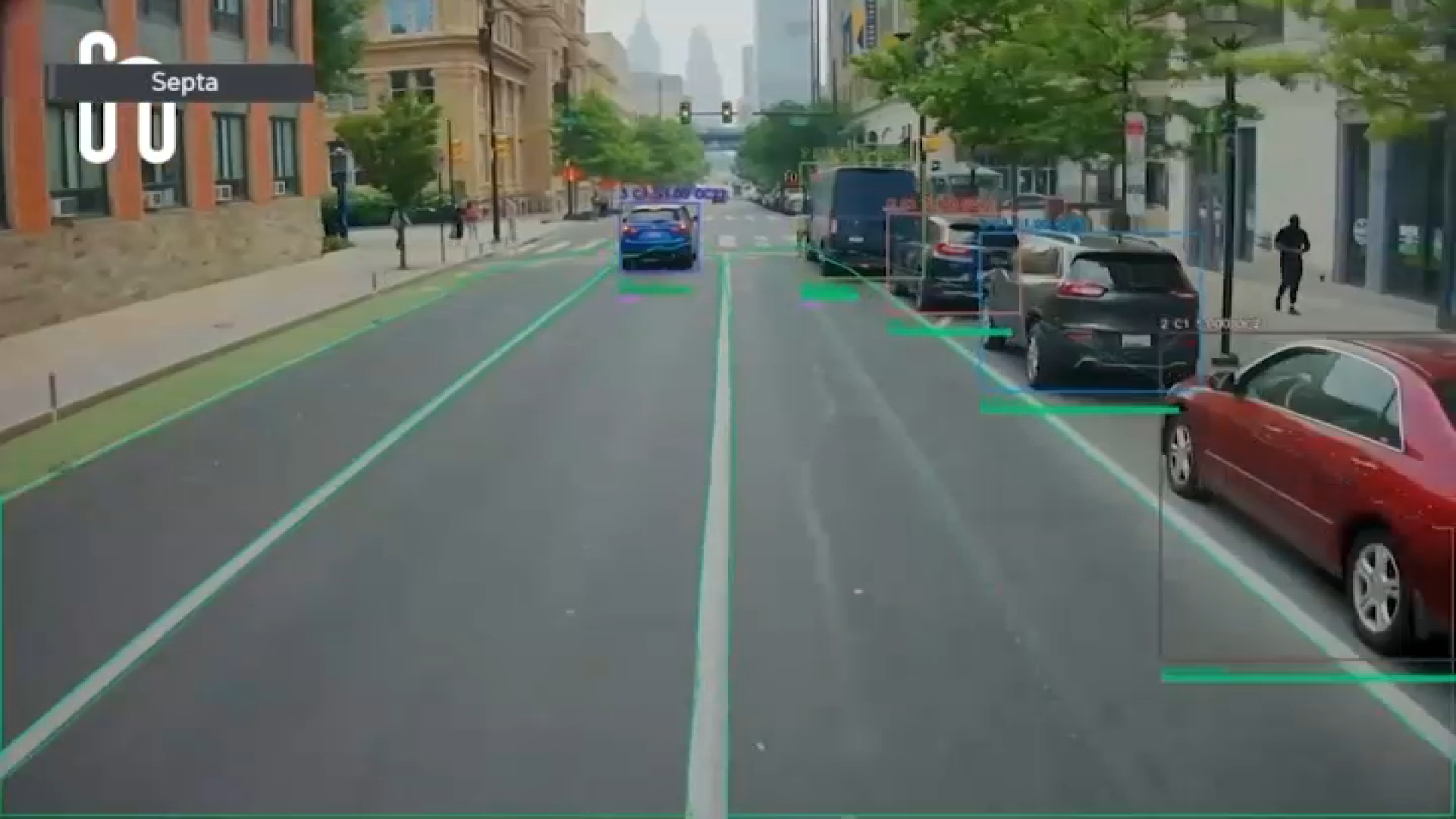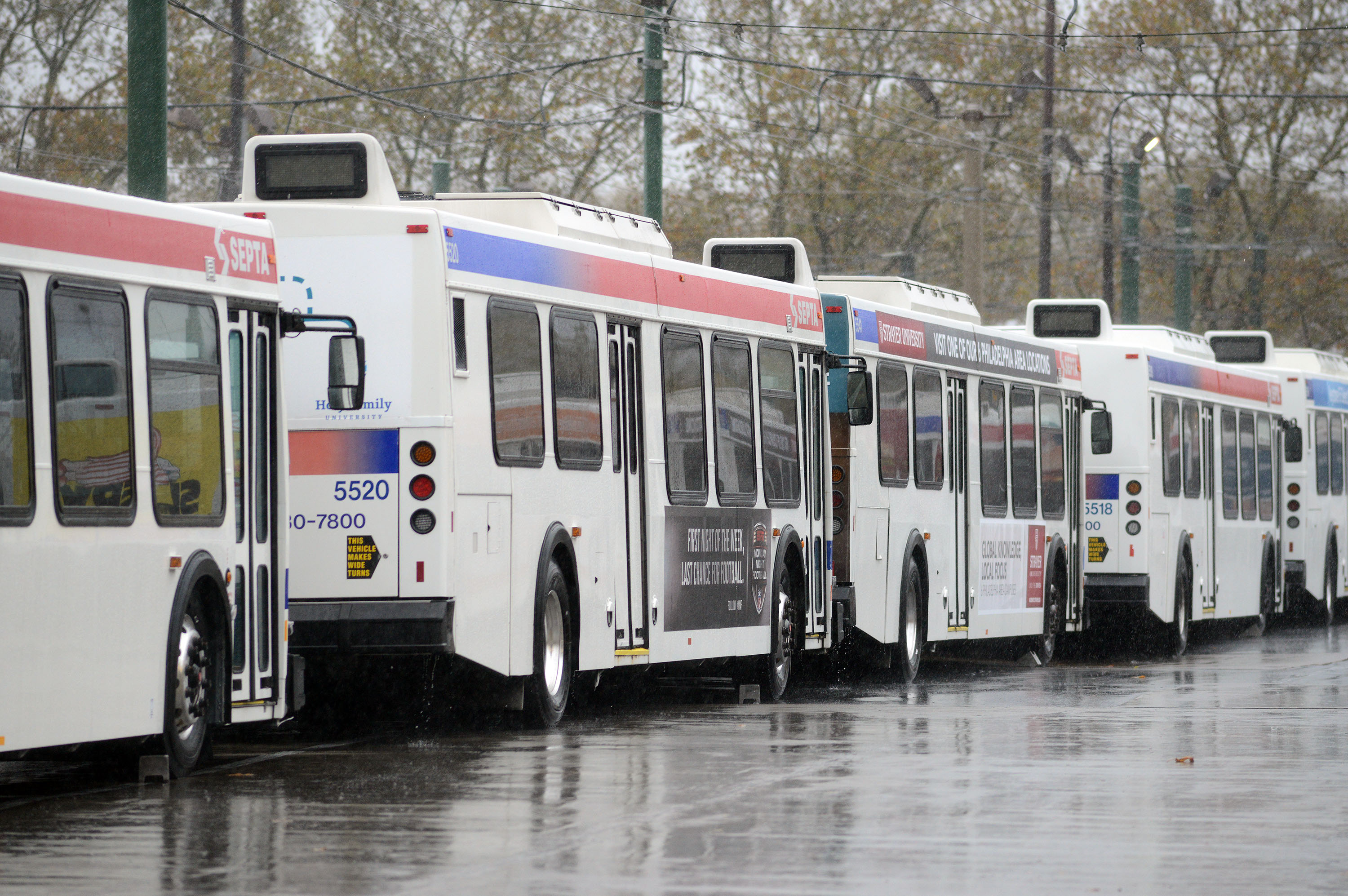Drivers who are stopped or parked in a Philadelphia bus lane when a SEPTA bus passes will be ticketed moving forward. The Philadelphia Parking Authority and SEPTA will begin using AI technology next month to catch violators. NBC10’s Yukare Nakayama has the details on the new enforcements.
Get out of the bus lane or no stopping zone or be prepared to pay up -- even if a Philadelphia Parking Authority worker doesn't witness it.
Starting on Wednesday, May 7, 2025, cameras using artificial intelligence will begin ticketing drivers stopped in bus lanes, no stopping lanes and/or double parked, the Philadelphia Parking Authority confirmed to NBC10.
Representatives from the PPA, SEPTA and Philadelphia's Office of Transportation, Infrastructure and Systems (OTIS) joined forces on Monday, April 7, 2025, to talk about the artificial-intelligence driven program.
In a news release ahead of the announcement, the PPA said its Automated Bus Camera Enforcement Initiative is "aimed at improving safety and alleviating congestion by using camera-mounted computer vision technology to enforce violations for blocking bus lanes, bus stops, and trolley zones."
Get top local stories in Philly delivered to you every morning. Sign up for NBC Philadelphia's News Headlines newsletter.
That's right, cameras mounted to SEPTA buses will be used to issue tickets. The AI will identify illegally parked vehicles and then PPA officers will decide if a ticket is warranted, officials said.
A warning period ahead of fines being issued to driver caught illegally parking by AI cameras
Before the tickets start going out to drivers, a three-week warning period is set to begin on Wednesday, April 16. During that period, warning notices will be issued by mail.
The area covered by the new program will cover "vehicles parked or stopped illegally in designated no stopping lanes, bus stops, or double parked in Center City (on and between Spring Garden and Bainbridge Streets, and between the Delaware and Schuylkill Rivers) or on Market, Chestnut, and Walnut Streets between the Schuylkill River and 63rd Street," the PPA said.
Violators will get fines in the mail once the warning period ends, the PPA said.
"There is no better example of intergovernmental cooperation and collaboration than our 3 agencies working together to use smart camera vision technology — to improve public safety and enhance urban mobility and local quality of life by reducing congestion and increasing traffic flow on some of our most congested city arteries," PPA Executive Director Rich Lazer said in a news release.
SEPTA is installing AI cameras on about 152 buses and 38 trolleys, the PPA said.
The no stopping, no blocking the bus zone and no double parking tickets will carry a fine of $76 in Center City and $51 in other neighborhoods.
The only video that will be stored from the bus mounted cameras will be incidents of illegal parking, officials said. All other video captured by the cams will not be kept.
Police would need to subpoena any video if being used in a criminal investigation, officials said.
Looking to improve bus efficiency
The hope is that the tickets will make drivers think twice about blocking bus lanes and stops in effort to improve safety and ease traffic congestion.
"The camera-aided bus and trolley enforcement initiative will ease commutes for working Philadelphians, while improving the performance of SEPTA's system," Christopher Puchalsky, Ph.D., Director of Policy and Strategic Initiatives, OTIS, said.
Illegal parking in SEPTA bus lanes costs the mass transit company money, slows traffic and causes safety concerns for riders, officials have said.
"We are proud to partner with the Philadelphia Parking Authority on this initiative, which will bolster SEPTA's efforts to provide customers with safe and reliable service," SEPTA interim General Manager Scott Sauer said. "Illegally parked vehicles obstructing transit throw buses off schedule, slow down service, and create unnecessary dangers to riders and pedestrians. We are eager to see the improvements this program will deliver."
The program should also make people with disabilities have an easier time boarding buses and trolleys.
AI-powered cam monitoring of bus lanes is believed to help safety and to ease congestion
"Legislation authorizing the PPA and SEPTA to operate the automated bus enforcement camera program was sponsored by Councilman Mark Squilla, and was passed unanimously by City Council in October 2023," the PPA said.
Former Philadelphia Mayor Jim Kenney signed the law allowing SEPTA to use the Hayden AI parking enforcement systems to ticket drivers for "parking, stopping and standing violations that interfere with mass transit," back in November 2023.
“I’m proud to sign this bill into law. It is another innovative step forward to keep Philadelphians safe and traffic moving smoothly," Kenney said at the time. "Thanks to these cameras, we are increasing efficiency in our streets to make our city even more accessible. I want to thank everyone who made this bill possible."
Prior to the bill being signed, a pilot of the camera-enforced program took place over the course of about 70 days. During that time, cameras caught more than 36,000 vehicles illegally parked on bus lanes for the route 21 and 42 buses.
Officials said they hope this effort will help improve traffic congestion and pedestrian safety issues. In announcing the pilot program, SEPTA officials said illegal parking creates safety concerns as anyone waiting for the bus -- or those who want to get off the bus -- where a vehicle is illegally parked would need to cross traffic as the bus would need to double park to accommodate the car in the bus lane.
Also, by making buses travel around illegally parked vehicles, drivers who park in bus lanes impact the efficiency of mass transit, slowing buses on their way to their destination and causing traffic as the buses need to weave in and out of bus lanes.
In this way, officials said, illegal parking in bus lanes cause riders to spend an additional 30 hours a year in traffic.
New York City, Washington D.C. and Los Angeles are among the cities already using bus-mounted cameras to ticket drivers, officials said.
The PPA is leasing the technology from Hayden AI, the agency said.
"Using our technology to help make cities safer and more accessible for everyone is hugely gratifying for us at Hayden AI,” Hayden AI Executive Chairwoman Lisa Schule said. “Everyone benefits when more people can and choose to ride public transportation. We are grateful for the opportunity to help Philadelphia improve road safety, transit accessibility, and on-time transit performance."
Sign up for our Breaking newsletter to get the most urgent news stories in your inbox.



